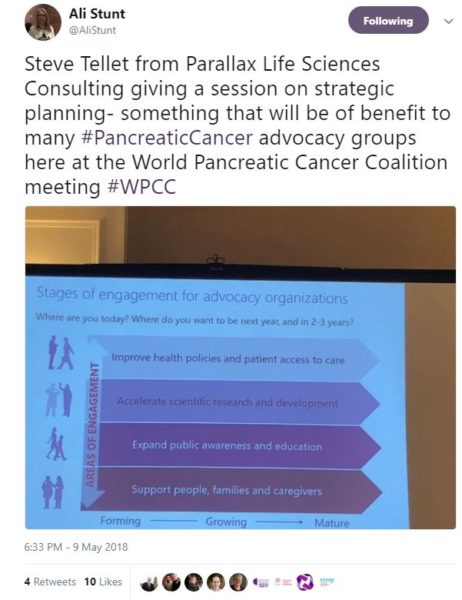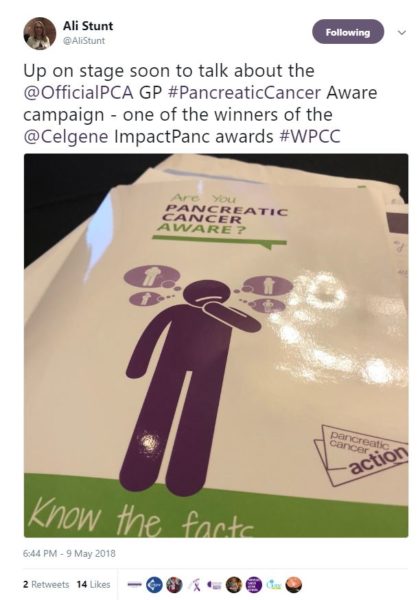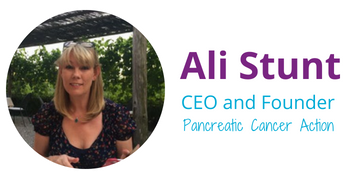World Pancreatic Cancer Coalition Meeting May 2018
In early May, delegates from 31 countries on six continents representing 74 member organisations got together at the 4th Annual World Pancreatic Cancer Coalition Meeting in Florida.
The purpose of the meeting was to provide support and tools for Coalition members through the sharing of best practices, resources and achievements.
It was an opportunity too to hear from researchers about current scientific information and the progresses made in the research arena. The message was, for once, a positive one, with advances in imaging; with new techniques using contrast micro-bubbles to allow pancreatic cancer to be more accurately diagnosed by ultrasound. Also discussed was that the use of PARP inhibitors could improve survival for up to 20% of pancreatic cancer patients who have mutations in BRCA1, BRCA2, PALB2 and ATM (5 to 8 percent of patients) and alterations in other genes that also are sensitive to PARP inhibitors.
Others reported that of the 1-3% of pancreatic cancer patients who have high Microsatellite Instability (MSI) – a type of DNA change – may benefit from immunotherapy, and in particular the Keytruda therapy. While this is a small subset of patients, identifying subtypes of the disease that allow us to identify which patients will respond to which therapies i.e., personalised medicine, will not only help chip away at the disease, but as more is known about the biology of pancreatic cancer, the more we can successfully treat patients with therapies which will be beneficial rather than the scattergun approach used now with generic systemic chemotherapies.
There was also an interesting presentation on the use of synthetic vitamin D in clinical trials for metastatic pancreatic cancer. The thought is that synthetic vitamin D could normalise a barrier of cells called stellate cells that seem to shield pancreatic tumours from chemotherapy drugs. In theory, with vitamin D removing this shield, this could make pancreatic cancer much more susceptible to therapy.
 |
 |
A lot of the meeting focused on increasing global outreach and advocacy – learning from others as well as advocacy, fundraising and media workshops, presentations on developing organisational strategies and on the power of media.
I presented Pancreatic Cancer Action’s GP Pancreatic Cancer Aware pilot – for which we won a Celgene ImpactPanC award last year along with other winners from Brazil and the USA. A result of which, I was inundated with requests to send delegates copies of our GP packs!
As Chair of World Pancreatic Cancer Day, I presented the outcomes of last year’s campaign and introduced 2018 concepts with Larry Krutchick from the agency, Hill and Knowlton Strategies (more on this soon!).
While it was great to have all these presentations and workshops, the best part for me was to have the opportunity to network with others from around the globe, informally sharing highs, lows, opportunities and successes. There is so much we can all learn from each other but importantly, there is so much we can do to improve outcomes for pancreatic cancer patients by working TOGETHER!
